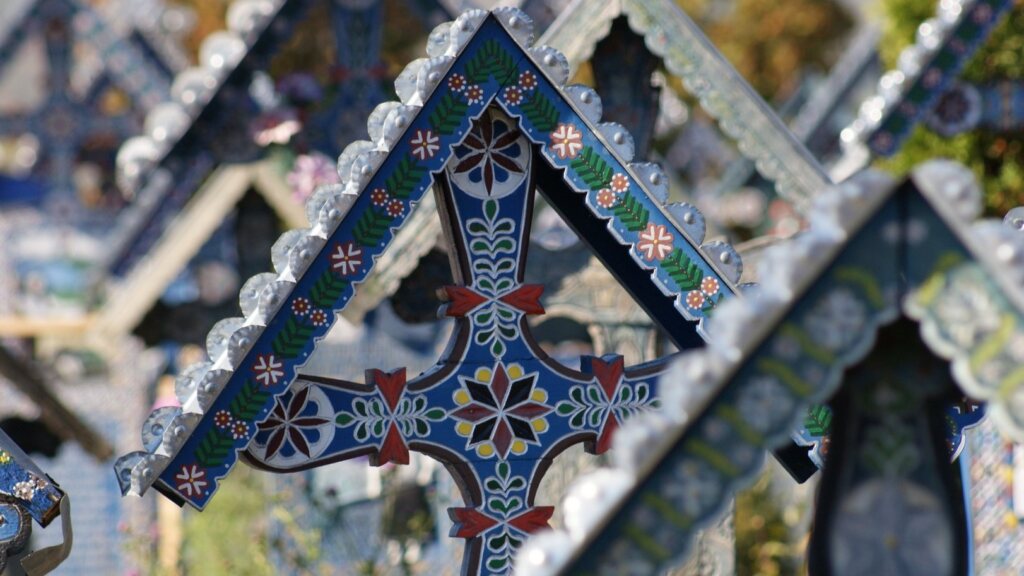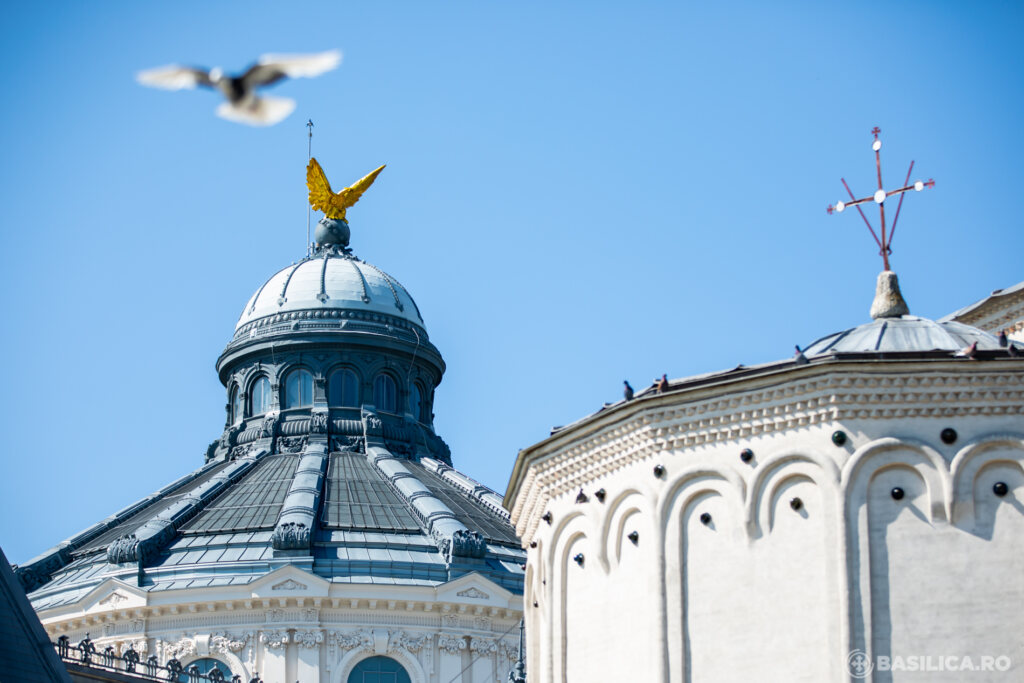Met in working session at the Patriarchal Residence on 28 February 2015 under the chairmanship of His Eminence Ioan Robu, Roman Catholic Archbishop and Metropolitan of Bucharest (according to the Statutes which stipulates chairmanship by turns), the Consultative Council of the Religious Cults of Romania took notice of the motivation of the decision of the Constitutional Court of Romania no 669 dated 12 November 2014 in regard to the statute of the Religion class published in the Official Bulletin, part I, no 59 dated 23 January, and found the following:
a. The Constitutional Court maintained the statute of the Religion class as school discipline, part of the common set, included in the education frame-plan and in the educational offer of the school.
b. The Constitutional Court changed only one aspect concerning the procedure of the pupil’s participation in the Religion class, namely based on a enrolling application.
The Consultative Council of the Religious Cults of Romania found that the decision of the Constitution Court valued the following principles:
– the particular constitutional statute of the religious education, organised and guaranteed by the state schools, according to the characteristic needs of every religious cult (article 32, paragraph 7 of the Romanian Constitution);
– the parents’ and tutors’ right to provide, according to their own convictions, the education of the minors making their own responsibility (article 6 of the Romanian Constitution),
– the importance of the freedom of religion and conscience, which brings about by all means the person’s own initiative in all regards concerning religion and conscience (point 19 of the motivation of the decision of the Constitutional Court no 669/2014, interpreted by article 29 paragraph 1 of the Constitution).
1. Starting from the common conviction that Religion class promotes the perennial spiritual values and the human behaviour peaceful and responsible in the family and society, the Consultative Council of the Religious Cults of Romania adopted the common appeal entitled “LIGHT FOR LIFE. Importance of the Religion class for the children’s and youth’s education (Annex)”.
2. The Consultative Council of the Religious Cults of Romania asks the Romanian Parliament to take into account the following proposal when the legal provisions designed to apply the Decision of the Constitutional Court no 669/2014 and to complete article 18 paragraph 2, thesis I of Bill no I/2011 of the national education are adopted:
Article 18, paragraph 2, thesis I: the enrolling or re-enrolling of the pupil to attend the Religion class should be based on the written application of the major pupil, of the parent or of the legal tutor instituted for the minor pupil; the changing of this option or withdrawal should be also based on a written application of the major pupil, of the parent, or of the tutor legally instituted for the minor pupil.
Motivation
This formulation will observe the decision of the Constitutional Court of Romania and facilitate the pupils’ enrolling to attend the Religion class, because:
-the pupil’s participation in the Religion class is based on the expressed desire of the person legally entitled, according to the freedom of conscience;
-the character of the Religion class as discipline included in the common set is taken into account;
-the participation of the pupils in the Religion class is done as a result of the desire of the person legally entitled, in accordance with the freedom of conscience;
-the character of the Religion class of discipline included in the common set is taken into account.
The Consultative Council of the Religious Cults of Romania is an organisation with ethic, social, autonomous, apolitical, non-governmental character, with no legal personality and non-profit, consisting of:
– Romanian Orthodox Church;
– Serbian Orthodox Diocese of Timisoara;
– Roman Catholic Church;
– Romanian Church United with Rome, Greek-Catholic;
– Archdiocese of the Armenian Church;
– Russian Orthodox Church of Old Rite of Romania;
– Reformed Church of Romania;
– A.C. Evangelical Church of Romania;
– Lutheran Evangelical Church of Romania;
– Unitarian Church of Transylvania;
– Christian Church according to the Gospel of Romania – Christian Churches’ Union according to the Gospel of Romania;
– Jewish Communities’ Federation of Romania – Mosaic Cult;
– Muslim Cult of Romania.
According to the stipulations of the Consultative Council of the Religious Cults of Romania, from 1 March 2015, the chairmanship of the Council will be provided by the Romanian Church United with Rome (Greek-Catholic) for one year.
Consultative Council’s Secretariat of the Religious Cults of Romania
ANNEX
LIGHT FOR LIFE
Importance of the religion class for
the children’s and youth’s education
(Appeal of the Consultative Council of
the Religious Cults of Romania – 28.02.2015)
1. Religion is integral and defining part of the European culture. We cannot understand the history and culture of this continent without knowing that. This is why, in almost all the European countries, Religion is taught within the public educational system.
2. The children and young people have the constitutional right to attend the Religion classes, a right acquired through the sacrifice of the young people who declared in December 1989 that “God exists”, coming back in this way to the healthy tradition of the Romanian people, an eminently religious people.
3. Religion is the light needed for understanding the universe and life, as a gift of God, in order to promote the values of the family, hospitality, justice, peace, solidarity, good understanding and communion among people.
4. The faith in God is the greatest spiritual dowry that the Family, Church, School and Community can convey to children, because it helps the young people make the difference between eternal and temporary values, and forms their personality, teaching them how to cultivate kindness and humanity, love for God and for their fellow beings, the gratitude to the past generations and responsibility to present and future.
5. The values provided by the religious education are an essential spiritual landmark and existential binder among all knowledge acquired through the study of the other school disciplines.
6. Teaching Religion in School has deep educational valences, through its formative role in the life of the children and of the young people, a fact also proved by the educational and sociological studies in the field. The Religion class diminishes the negative effects of the contemporary crisis of identity and orientation, because it proposes viable models of kindness, holiness and human cohabitation.
7. Religious education brings its share of contribution to overcoming the religious ignorance, which can favour ideological attitudes of intolerance.
8. The Religion class contributes to the formation and cultivation of a living conscience confessing the eternal value of the human person and to the promotion of its dignity in the family and society.
9. Because freedom represents a great Gift offered by God to man, religious education must be assumed in quite a free way, according to the desire of the parents and of the children. Freedom is not spiritual indifference, but man’s capacity to choose the spiritual values which enrich the life of the person and of the human community.
10. The religious cults wish closer cooperation with the State for promoting an integral education, which unites deep spiritual life with the rich scientific information because the deficit of spirituality or of existential sense of today’s technical society has negative consequences for the orientation of the young people in society.






